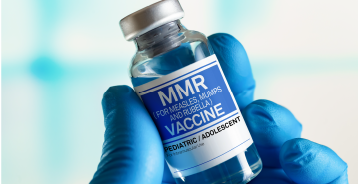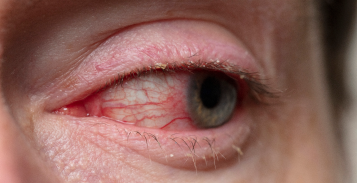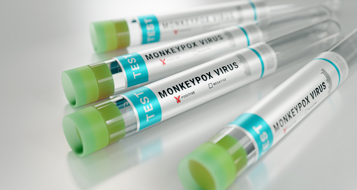Department of Health warns of increased rubella cases
 Medical Conditions
Medical Conditions
 Medical Conditions
Medical Conditions

Antibiotics changed the face of healthcare. No longer was an infection a death sentence. Or the flu a months-long fight that left you drained and weak. But, the over-prescription of antibiotics has led to a sudden, and serious spike in antimicrobial resistance.
 Medical Conditions
Medical Conditions
Mumps and measles are both contagious viral diseases. They’re spread through direct contact with an infected person, or airborne droplets from a sneeze or cough.
 Medical Conditions
Medical Conditions
Spinal health is essential for your overall well-being. You could even say it’s the backbone of good health.
 Medical Conditions
Medical Conditions
For many people, the change of season allergies can be downright awful. Dealing with the symptoms can be overwhelming and frustrating.
 Medical Conditions
Medical Conditions
Disability is defined as “a physical or mental condition that makes it difficult for somebody to do some things that most other people can do.” You can be born with a disability, or a disability may occur later in your life.
 Medical Conditions
Medical Conditions
According to the Heart and Stroke Foundation of South Africa, nearly 240 people suffer from strokes every day and of those, 70 lose their lives. A stroke is mainly caused by hypertension, also known as high blood pressure (HBP), which is a very common medical condition that we all need to be aware.
 Medical Conditions
Medical Conditions
Pink eye, also known as conjunctivitis, is an eye infection that seems to be making its rounds once again, especially among families with children who attend school. Though it may be irritating, pink eye is mostly harmless and rarely affects your vision. If it’s a viral or bacterial infection, it can be highly contagious, so it’s very important to look out for the symptoms and make sure that it’s treated correctly.
 Medical Conditions
Medical Conditions
Regular self-exams to check for breast cancer are important. Think of this as getting to know your body better and a form of self-care or preventative care. Bestmed highly recommends breast self-exams because it helps with early detection of breast cancer and treatment tends to be more effective during the early stages of cancer.
 Medical Conditions
Medical Conditions
According to the World Health Organization (WHO), “Monkeypox is a viral zoonosis (a virus transmitted to humans from animals) with symptoms similar to those seen in the past in smallpox patients, although it is clinically less severe”. Monkeypox is mainly found in animals, however, according to the National Institute for Communicable Diseases (NICD), “occasionally, the virus may spill over from the infected animals to humans. Once, a person has been infected by an animal, person-to-person transmission may then occur through very close contact”.
 Medical Conditions
Medical Conditions
The Centers for Disease Control and Prevention (CDC) defines RSV, is a common respiratory virus that usually causes mild, cold-like symptoms. Most people recover in a week or two, but RSV can be serious, especially for infants and older adults.
 Medical Conditions
Medical Conditions
Diabetes is a chronic, lifelong condition that affects your body’s ability to use the energy provided by food. Diabetes mellitus is a chronic disease where the pancreas either does not produce any or enough insulin, which causes an excess of sugar (glucose) in the blood. Insulin is the hormone that assists your body’s cells to use glucose as energy for it to function properly.
 Medical Conditions
Medical Conditions
While a professional evaluation is critical in diagnosing autism, it is really important for a parent or caregiver to look out for the early signs. Developmentally, small things like few or no big smiles or other warm, joyful and engaging expressions, very few or no words and avoidance of eye contact, are some of the few things to look out for when you suspect that a child may have autism.
 Medical Conditions
Medical Conditions